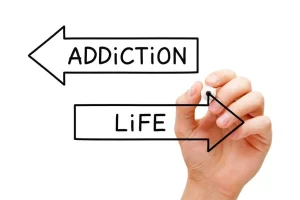Family members often bear the brunt of the violent episodes, both physically and emotionally. They may also face financial difficulties and have to navigate legal issues related to the consequences of the behaviour. It is crucial for family members to find support from professionals, local support groups, and resources such as the NHS and Adfam websites to help them cope with the challenges of Alcoholic Rage Syndrome. Diagnosing alcoholic rage syndrome requires a comprehensive evaluation by a healthcare professional or addiction specialist. They will consider the individual’s history, symptoms, and patterns of behaviour to make an accurate diagnosis. Once diagnosed, there are various treatment options available to manage this condition effectively.

Billy Ray Cyrus splits with Firerose, reportedly alleging fraud and seeking annulment

Alcohol impairs cognitive functions, diminishing the ability to think through consequences and increasing impulsive behavior. This lack of inhibitory control can lead individuals to act on immediate emotional impulses, such as anger, without considering the ramifications. Implementing strategies to enhance impulse control becomes essential in managing and preventing aggressive behavior in the context of alcohol consumption.
What Does Alcoholic Neuropathy Feel Like: Understanding the Symptoms and Impact on Daily Life
One study found that chronic alcohol use decreases the function in the prefrontal cortex, which plays a key role in impulse control. Remember, medication should be used in combination with other forms of therapy and support to address the underlying causes of alcohol-related aggression. It is crucial to follow the treatment plan prescribed by a healthcare professional. Alcoholic Rage Syndrome is a phenomenon characterized by intense and unpredictable outbursts of anger and aggression in individuals who consume alcohol excessively. This condition, also referred to as “alcohol-induced rage,” is a deeply concerning issue that can have severe repercussions on both the affected individual and their relationships. When dealing with alcoholic rage syndrome, it’s crucial to recognize the signs and seek help for yourself or your loved one.

Crisis Management
While alcohol can contribute to aggression and anger, alcoholic rage syndrome is usually the result of a combination of factors. These factors may include underlying mental health issues such as depression or anxiety, a history of trauma or abuse, and genetic predispositions. Excessive alcohol consumption can impair judgement and lower inhibitions, increasing the likelihood of aggressive behaviour. It is crucial to address the underlying causes of rage in alcoholics and provide comprehensive treatment that includes therapy, support groups, and lifestyle changes. It is worth noting that alcohol-related violence is responsible for a significant number of violent incidents worldwide.

In addition, research discovered that the effects of alcohol on aggression are more pronounced in people who think more about the “here and now” than about the future. When we aren’t concerned about consequences we may be more likely to act out in the moment. Alcoholic Rage Syndrome is caused by a combination of factors related to alcohol consumption. Excessive alcohol consumption impairs judgment and lowers inhibitions, leading to impulsive and aggressive behavior. Alcohol affects the brain’s neurotransmitters, including serotonin and dopamine, which can also contribute to changes in mood and aggression.
Anger Treatment Options
- Excessive alcohol consumption can impair judgement and lower inhibitions, increasing the likelihood of aggressive behaviour.
- Less cognitive function also means that you may misunderstand something and, in turn, overreact.
- In many cases, the person experiencing alcoholic rage may not even realize the extent of the damage they are causing until it’s too late.
- People with co-occurring disorders should receive specialized treatment.
- We’re only just beginning to understand how these fascinating yeasts affect our health.
- Drinking can have a relaxing or anxiety-relieving effect by mimicking the “chill-out” effects of GABA.
By this point, they seem to be unaware of their alcoholic rage actions. These therapy approaches can equip you with the skills to manage alcohol addiction, overcome anger issues, and prevent relapse. Don’t hesitate to consult a mental health professional regarding the most suitable therapy option for your needs.
Drugs & Supplements
- People with higher levels of testosterone are more likely to be aggressive.
- If you are concerned that you or someone you care about has a problem with alcohol there is a lot of help available.
- These activities might include learning how to practice mindfulness meditation, yoga classes, therapeutic massage, acupuncture, deep breathing exercises, aromatherapy, and music and art therapy.
Instead, each participant randomly lost the game about half the time and was led to believe another person was delivering shocks to them during each loss. “Later on in the night, you may find someone crying or becoming overly emotional, and this is because, as the alcohol wears off, there is a big drop in serotonin below baseline,” Tietz explains. But effects to other neurotransmitters, including gamma-aminobutyric acid (GABA) and glutamine, may also be involved. Alcohol can impair the OFC, and disrupt communication between the OFC and the amygdala. Without the OFC doing its job of calming those intense emotions, a person can have a strong reaction (2).
Anger Management Issues
- Additionally, alcohol disrupts neurotransmitter balance, affecting serotonin and other mood-regulating chemicals.
- Although stressful, there are different strategies you can take to help navigate daily interactions when you’re around rageaholic behaviors.
- As our blood alcohol concentration (BAC) elevates personality changes can become more extreme.
- Selecting the best care involves considering your personal needs, circumstances, and preferences.
- Drinking may also be a method to self-medicate negative emotions, including anger.

